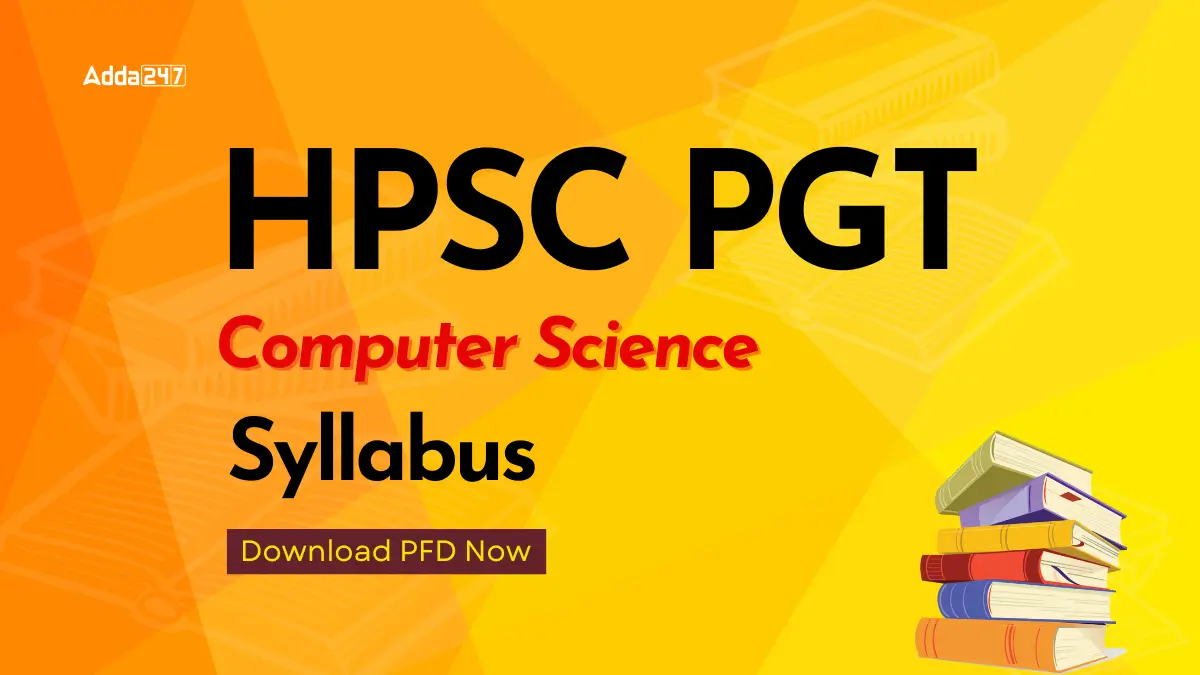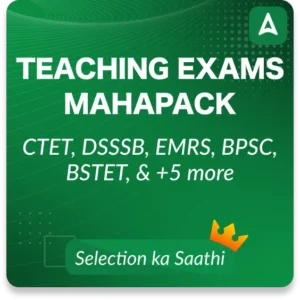Table of Contents
The HPSC PGT Computer Science Syllabus 2025 has been released on the official website of the Haryana Public Service Commission (HPSC). With the exam date now announced, candidates should go through the detailed syllabus, exam pattern, marking scheme, and other key information without delay. To help you prepare better, we’ve provided a direct link to download the HPSC PGT Computer Science Syllabus PDF. Read the full article to access the syllabus and plan your preparation effectively.
HPSC PGT Computer Science Syllabus 2025
The HPSC PGT Computer Science Syllabus 2025 is the backbone of effective exam preparation, offering a clear outline of all the topics candidates need to cover. A thorough understanding of the syllabus helps aspirants identify high-weightage subjects, organize their study plans, and concentrate on essential areas such as Python programming, Data Structures, Operating Systems, and Computer Networks. Following the official syllabus ensures candidates stay aligned with the Haryana Public Service Commission’s expectations, avoiding unnecessary topics and saving valuable preparation time. Mastering the syllabus boosts confidence, improves accuracy, and significantly enhances overall HPSC PGT Computer Science Exam performance.
HPSC PGT Computer Science Exam Pattern 2025
The HPSC PGT Computer Science Exam 2025 includes a three-stage selection process: Screening Test, Subject Knowledge Test, and Interview. The process begins with the Screening Test, which features 100 multiple-choice questions covering core computer science topics along with general awareness, pedagogy, and reasoning. This stage is only qualifying in nature, meaning the marks won’t count toward the final merit. Candidates who clear the screening round move on to the Subject Knowledge Test, a comprehensive 3-hour written exam worth 150 marks. This stage carries 87.5% weightage in the final merit calculation. Finally, shortlisted candidates appear for the Interview, which holds the remaining 12.5% weightage. The final selection is based on the combined performance in the Subject Knowledge Test and the Interview.
| HPSC PGT Computer Science Exam pattern 2025 | ||||
| Haryana HPSC PGT Exam Pattern | Total Marks/Questions | Weightage | Exam Type | Minimum Qualifying Marks |
| Screening Test | 100 | – | Objective | 25% |
| Subject Knowledge Test | 150 | 87.5% | Descriptive | 35% |
| Interview | – | 12.5% | – | – |
HPSC PGT Computer Science 2025 Syllabus Detailed
The HPSC PGT Computer Science Syllabus 2025 includes a broad set of topics designed to equip candidates for teaching roles at the senior secondary level. It covers core areas of computer science such as Python programming, Data Structures, Operating Systems, Computer Networks, Database Management Systems, Software Engineering, Digital Logic, Compiler Design, and Theory of Computation. Alongside these theoretical subjects, the syllabus also focuses on practical and modern aspects like Cyber Safety, Emerging Trends in IT, and Pedagogical Techniques tailored for classroom teaching. This well-rounded syllabus helps candidates stay updated with current technologies while strengthening their foundational knowledge, ensuring they’re fully prepared for both the exam and real-world teaching.
| HPSC PGT Computer Science Syllabus 2025 | |
| Unit | Desciption |
| Computer Systems and Organisation |
|
| Computational Thinking and Programming (with Python) |
|
| Society, Law, and Ethics |
|
| Computer Networks |
|
| Database Management Systems (DBMS) |
|
| Data Structures and Algorithms |
|
| Operating Systems |
|
| Software Engineering |
|
| Digital Logic and Circuits |
|
| Theory of Computation |
|
| Compiler Design |
|
| Emerging Trends in IT |
|
| Educational Psychology and Pedagogy (for Teaching Aptitude) |
|
HPSC PGT Computer Science Syllabus 2025 PDF
The HPSC PGT Computer Science Syllabus 2025 PDF is provided below for download. Candidates should use it to guide their preparation, track progress, and ensure thorough coverage of all important topics for the exam.
| HPSC PGT Computer Science Syllabus 2025 PDF | |
| HPSC PGT Syllabus 2025 General Paper | Click Here to Download |
| HPSC PGT Computer Science Syllabus 2025 | Click Here to Download |




 HP SET Syllabus 2026 and New Exam Patter...
HP SET Syllabus 2026 and New Exam Patter...
 AP SET Syllabus 2026 and New Exam Patter...
AP SET Syllabus 2026 and New Exam Patter...
 Jharkhand JET Syllabus 2026, Download Su...
Jharkhand JET Syllabus 2026, Download Su...













